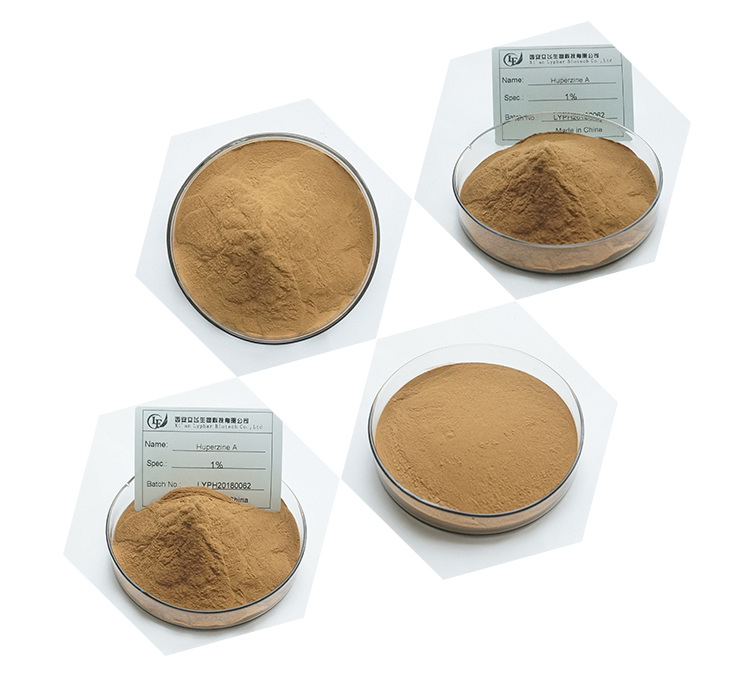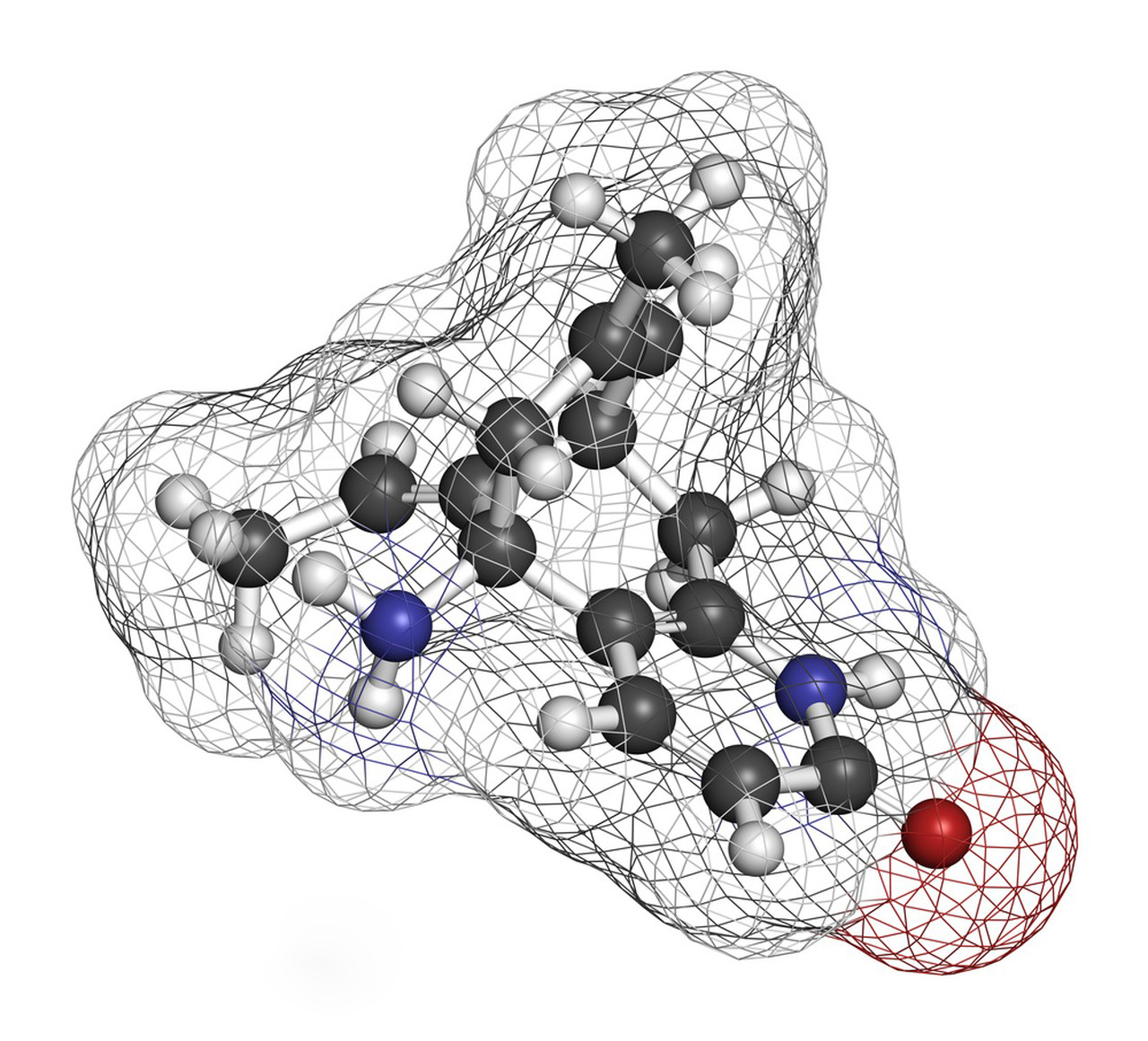Huperzine A is a natural compound derived from a plant called Huperzia serrata. It has garnered interest primarily for its potential cognitive benefits, particularly in relation to memory and mental function. Here are some common applications and benefits associated with Huperzine A:
Applications of Huperzine A
1.Memory Enhancement: Huperzine A is known for its ability to inhibit acetylcholinesterase, an enzyme that breaks down acetylcholine in the brain. Acetylcholine is a neurotransmitter essential for memory and learning processes. By inhibiting this enzyme, Huperzine A increases acetylcholine levels, potentially enhancing memory and cognitive function.
2.Alzheimer’s Disease and Dementia: Due to its action on acetylcholine, Huperzine A has been studied for its potential therapeutic effects in Alzheimer’s disease and other forms of dementia. Some research suggests it may help improve cognitive function and behavior in individuals with Alzheimer’s disease.
3.Neuroprotective Effects: Huperzine A has shown neuroprotective properties in various studies, which means it may help protect brain cells from damage and degeneration. This could potentially benefit conditions involving neurodegeneration.
4.Learning and Focus: Users of Huperzine A often report improvements in learning abilities, focus, and concentration. These effects are linked to its role in enhancing acetylcholine activity in the brain.
5.Mood and Mental Energy: Some individuals also experience improvements in mood and mental energy levels when taking Huperzine A. This is thought to be related to its effects on neurotransmitter balance and cognitive function.

6.Potential Side Effects: While generally considered safe when used appropriately, Huperzine A can cause side effects such as nausea, diarrhea, and insomnia in some individuals. It can also interact with certain medications, so it’s important to consult with a healthcare provider before starting supplementation.
7.Dosage and Form: Huperzine A is typically taken in small doses ranging from 50 to 200 micrograms per day. It is available in supplement form and is often combined with other nootropics or cognitive-enhancing compounds.
Overall, while research on Huperzine A is ongoing, it shows promise as a natural cognitive enhancer, particularly in supporting memory and mental function. As with any supplement, it’s crucial to use it responsibly and under the guidance of a healthcare professional, especially if you have any existing health conditions or are taking medications.
The adverse impact of Huperzine A
Huperzine A is a natural compound derived from Chinese club moss (Huperzia serrata) that has been studied for its potential cognitive-enhancing effects, particularly in Alzheimer’s disease and age-related cognitive decline. However, like any substance, it also has potential adverse effects and considerations:
1.Gastrointestinal Issues: Some individuals may experience digestive problems such as nausea, vomiting, diarrhea, or stomach discomfort after taking Huperzine A.
2.Muscle Twitching: In some cases, Huperzine A has been reported to cause muscle twitching or fasciculations, which can be bothersome or concerning to users.
3.Headaches: Another common side effect reported by users is headaches. These can range from mild to severe and may affect some individuals more than others.
4.Insomnia or Sleep Disturbances: Huperzine A can interfere with sleep patterns in some people, leading to insomnia or disrupted sleep.
5.Cardiovascular Effects: There have been reports of palpitations or changes in heart rate associated with Huperzine A use. Individuals with pre-existing heart conditions should use caution.

6.Interaction with Medications: Huperzine A may interact with certain medications, particularly those affecting the nervous system or with other cognitive enhancers. It’s essential to consult a healthcare provider before taking it, especially if you are on other medications.
7.Long-term Safety: While short-term use seems generally well-tolerated in studies, long-term effects are less well-understood. More research is needed to determine its safety profile with extended use.
8.Cholinergic System Overstimulation: Huperzine A works by inhibiting the enzyme acetylcholinesterase, which breaks down acetylcholine. This can lead to an increase in acetylcholine levels, potentially causing symptoms of excess cholinergic activity such as excessive salivation, sweating, or muscle cramps.
9.Allergic Reactions: Although rare, allergic reactions to Huperzine A can occur. Symptoms may include rash, itching, swelling, dizziness, or difficulty breathing. Immediate medical attention should be sought if any signs of an allergic reaction occur.
10.Pregnancy and Breastfeeding: Due to limited safety data, pregnant or breastfeeding women should avoid using Huperzine A to prevent any potential harm to the fetus or infant.
In summary, while Huperzine A shows promise as a cognitive enhancer, especially in conditions like Alzheimer’s disease, its use should be approached cautiously. Consulting with a healthcare provider is crucial to determine if it’s suitable for individual needs and to monitor for any adverse effects, particularly in those with pre-existing conditions or who are taking other medications.
